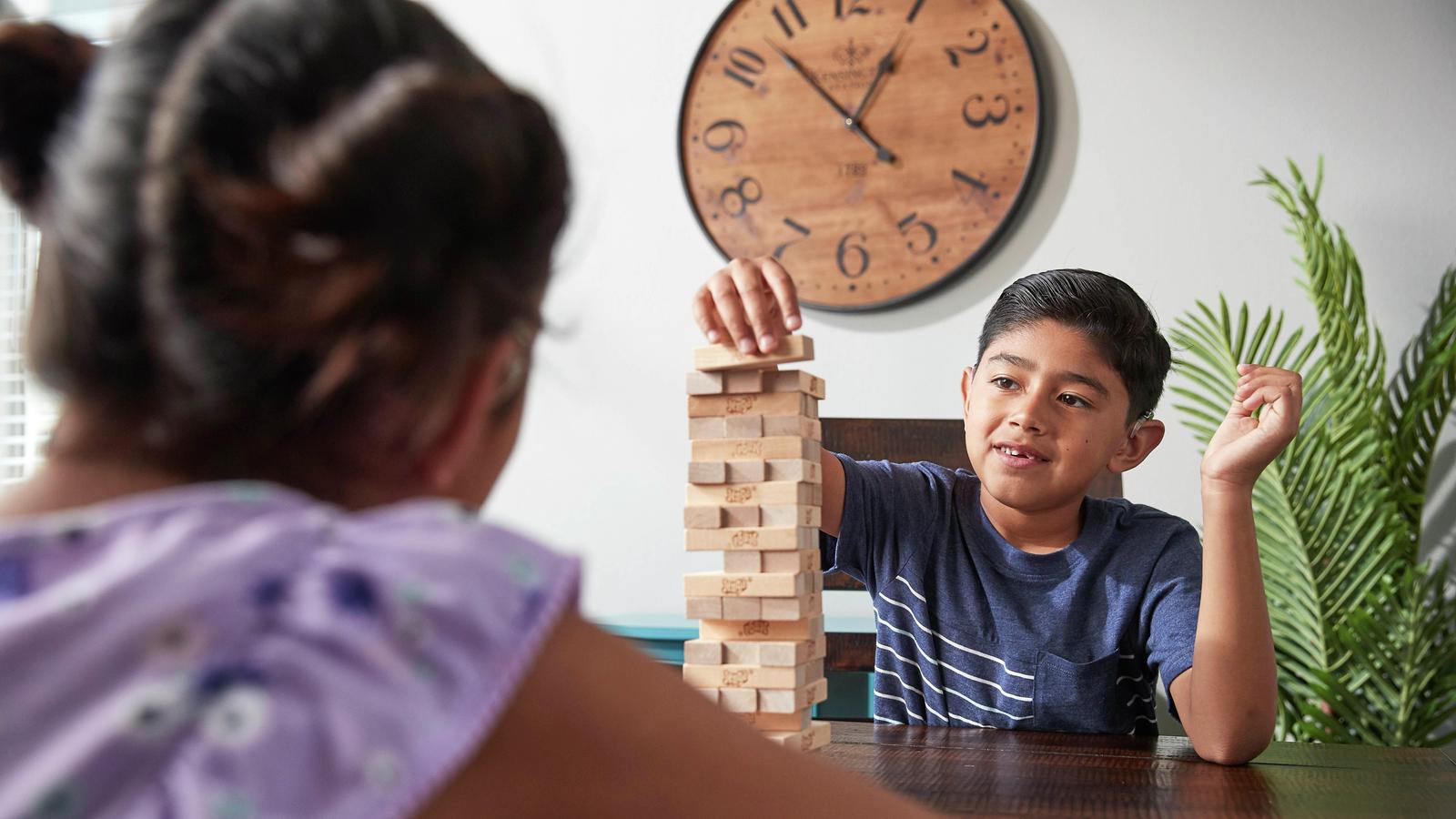Getting help for a loved one
Help your loved one take the first step on their hearing journey.

What you'll find on this page
- How you can support a loved one.
- How others have coped with a loved one's hearing loss.
- What you can do next.
The first step to helping a loved one
People with hearing loss often say they feel alone. It's hard, but it’s also hard for those who love them. Whether it's your wife, husband, parent or friend, it's painful to watch someone you care for shut themselves off from their world.
But it doesn't have to be that way.
Try talking to them about their hearing loss. There are options to improve hearing, even if hearing aids no longer help.
Research suggests a link between hearing loss and loneliness.1,2 That's why if you think your loved one has hearing loss, it's important they take action as soon as possible. Ignoring the signs may affect more than just their ability to hear.
"Since getting his Kanso® [Sound Processor], Tom's doing so well. It's amazing. I feel like he's back. He's my husband again. A big burden has been lifted off me, too. He can actually talk on the phone now!"*¹
- Brenda, wife of Tom, Cochlear™ Nucleus® Sound Processor recipient
Taking the next step
Your doctor can refer your loved one to a hearing health professional, who can test their hearing and help them find the right solutions for their needs.
Find a hearing implant specialist near you
Disclaimer
Please seek advice from your health professional about treatments for hearing loss. Outcomes may vary, and your health professional will advise you about the factors which could affect your outcome. Always follow the directions for use. Not all products are available in all countries. Please contact your local Cochlear representative for product information.
For a full list of Cochlear’s trademarks, please visit our Terms of Use page.
*1 Views expressed are those of the individual. Consult your health professional to determine if you are a candidate for Cochlear technology.
References
- Contrera K, Sung Y, Betz J, Li L, Lin F. Change in loneliness after intervention with cochlear implants or hearing aids. The Laryngoscope. 2017;127(8):1885-1889.
- Rutherford B, Brewster K, Golub J, Kim A, Roose S. Sensation and Psychiatry: Linking Age-Related Hearing Loss to Late-Life Depression and Cognitive Decline. American Journal of Psychiatry. 2018;175(3):215-224.







